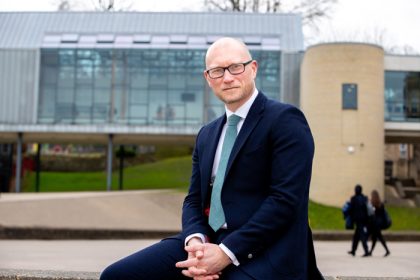Earlier this week, HMC published a report, ‘Time to Talk’, into the perceptions and attitudes of nearly 800 teachers, 450 of which were senior leaders from state and independent sectors, regarding the future of curriculum, assessment and education generally in the UK.
Most readers will have an educated inkling about what comes next. The author of the report, Sarah Fletcher, High Mistress of St Paul’s Girls’ School and Chair of HMC ‘Reform of Assessment’ Working Group pulled no punches:
“The passion and idealism of the teaching profession shines through. Respondents support student centred and future facing outcomes. They are excited by the advantages technology could offer in improving standards, bringing learning communities together, and in developing more personalised approaches to assessment. They are clear, however, that the current educational system is falling short.”
I have written before about long-known but rarely debated or publicised shortcomings in our assessment and qualification systems in the UK. Broadly speaking, these are twofold and reflect concerns about accuracy and appropriateness.
The failings regarding accuracy are startling, but largely unknown beyond niche circles. Centre Assessment Grades (CAGs) and Teacher Assessed Grades (TAGs) motivated much angst and media headlines. These were very different processes to public examinations and therefore it was reasonable to expect different outcomes. This, however, was largely forgotten. ‘Inflation’ was the cry, although it is impossible to inflate something that has never happened before. ‘Inaccurate’ was the anguished follow up. But characterising public exam outcomes as accurate and entirely preferable to teacher-based judgements is not as straightforward as one might assume. Readers might wish to consult https://www.hepi.ac.uk/2019/01/15/1-school-exam-grade-in-4-is-wrong-does-this-matter/ which makes the point that, on average, about one grade in four, across the component parts of GCSE, AS and A Level examinations, has been wrong historically. So, therefore, every candidate sitting four A Levels is likely to be awarded one wrong grade, and every candidate sitting eight GCSEs is likely to be awarded two wrong grades.
Also, drawing directly on the data in the article referenced above, for every 100 candidates sitting A Level maths, further maths and physics, about 81 receive a certificate on which all three grades are right, while about 19 are awarded at least one wrong grade. For every 100 candidates sitting A Level English language, English literature and history, about 20 receive a certificate on which all three grades are right, while about 80 are awarded at least one wrong grade. Exams are expected to recommence this spring.
When reflecting on the appropriateness and relevance of our UK (school) qualifications, we might wish to refer to The Organisation for Economic Co-operation and Development report, ‘Future of Education and Skills’, which argues that: “Education should go well beyond the acquisition of knowledge and learning skills. Fostering a love of learning, building resilience, and developing self-esteem and confidence are all seen by respondents as part of the purpose of education.”
Assessment will always be imperfect, but GCSEs have been peppered with flak for some time now. First taken in 1988, replacing the Certificate of Secondary Education (CSE) and the more ‘academic’ General Certificate of Education (GCE) O Level, these exams represented an end point in the secondary education of most young people. Advanced Levels and other post-16 qualifications provided onward access into various specific niches, including university. But the GCSE represented a last word in the school careers of many. Since then, much has changed and GCSEs are rarely a passport to fully fledged adult life, no longer a school leaving certificate for 16-year-olds, particularly when compulsory education or training now extends to at least age 18.
The recently published HMC report takes up this baton and runs with it, arguing that: “The current education system is too focused on qualifications at the expense of broader aims, and thereby is falling significantly short in preparing young people to thrive in the 21st century”. The promotion of wellbeing, creativity, critical thinking and problem-solving skills is seen to be inadequate. I talk at length with my senior colleagues at BGS about fostering personal agency in our pupils. To be honest, they can be forgiven for being a little tired of my overuse of that word, ‘agency’, but I was heartened to see it as a thread in Sarah Fletcher’s analysis. The increased activity we are undertaking at BGS to promote self-efficacy and independence with respect to study habits and wider positive behaviours, and embrace the potentially transformational power of technology, chimes with the findings of the HMC report.
Ultimately, the claim is made that “assessment is too narrowly focused … serving the purposes of university selection and employers … [rather than] … encouraging learner development or in motivating engagement in education”. Furthermore, the reports suggests that the “Government should appoint an apolitical individual or organisation to lead a comprehensive and independent consultation looking at widespread reform of the curriculum and current assessment models. This consultation process should examine multi-modal assessment, consider the role of creative, technical and vocational qualifications, engage with neuroscientists, look at the potential ed-tech can play in education, and focus on mental and physical health and wellbeing.”
The post-lockdown CAG/TAG landscape provides fertile ground to consider these findings and recommendations. Momentum for a rethink is growing.
